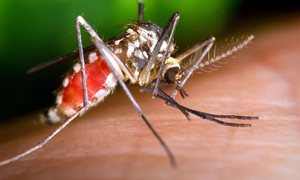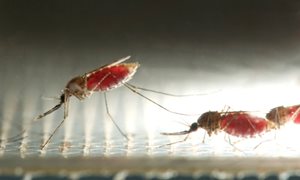 Leo Joosten, theme Infectious diseases and global health, and colleagues published in PNAS about the role of glutathione metabolism in host defense against Borrelia burdorferi infection.
Leo Joosten, theme Infectious diseases and global health, and colleagues published in PNAS about the role of glutathione metabolism in host defense against Borrelia burdorferi infection.
Borrelia burgdorferi, the bacterium that causes Lyme disease, has a very limited metabolism of its own and therefore relies heavily on the host for the supply of nutrients. This study describes that during this process, the bacterium also alters cellular metabolism in the host. Specifically, it was found that when human white blood cells were exposed to B. burgdorferi, the levels of the important antioxidant glutathione increased around 10-fold. Surprisingly, this appeared to have limited effect on the oxidative state of the cell. Instead, glutathione was found to be a critical regulator of B. burgdorferi-induced cytokine production, likely through the process of protein glutathionylation.
Importantly, this study finds that glutathione metabolism is also altered in patients with Lyme disease, even weeks to months after the initial infection. This suggests that these metabolic alterations may persist even after the bacterium has been cleared.
Taken together, this study not only provide more insight into the pathogenesis of Lyme disease, but also underlines how host-pathogen interactions in metabolism can play crucial roles in host defense against pathogens.
Leo Joosten
Related news items

Grants for research on magnesium deficiency and malaria Vidis for Felix Hol and Jeroen de Baaij
1 July 2022 Radboudumc researchers Jeroen de Baaij and Felix Hol both receive an NWO Vidi grant for their research, respectively on magnesium deficiency in type 2 diabetes and on malaria. go to page
Field research on malaria vaccine offers unexpected surprise
23 May 2022Field research on the effectiveness of a malaria vaccine, came up with unexpected results for an international group of researchers including Benjamin Mordmüller of Radboudumc. The vaccine evokes a broader response against malaria proteins than there are in the vaccine.
go to page
Rubicon grants awarded to three RIMLS researchers
19 April 2022Three researchers have received Rubicon funding from NWO/ZonMw. This will enable Elke Muntjewerff, Laura de Vries and Laurens van de Wiel to do research at a foreign research institute for the next two years.
go to page


